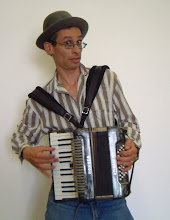The scholar Dovid Katz (“Words on Fire: The Unfinished Story
of Yiddish) argues that cross-language word play has been a part of our culture
as long as Yiddish has been spoken in the Diaspora. Sometimes it is
self-consciously clever, as when we identify the German heiraten (to marry) with the start of the Hebrew wedding vows harei-at. Or when we use the Hebrew poh-lan (here-sojourn) to describe the
land where we found refuge for most of a thousand years after the Crusades. And
sometimes the word-play is so intricate that the whimisical meaning becomes
inextricable from the literal meaning.
There is
a Yiddish expression to describe a type renegade who does not observe proper
boundaries: poretz geder, from the
Hebrew, meaning literally violator of boundaries. Both these words have near
(or exact homonyms); there is another poretz
(also from the Hebrew) which means lord,
or squire; and so the local Polish
landowner was known in Yiddish as the poretz.
(The plural form poREYtzim is an odd
hybrid with its German vowel shift and Hebrew suffix. But I digress.)
The other
near-homonym is the German Gedärm ,
meaning “intestines”. The German word is a singular form, but interestingly in
Yiddish it is stretched into three syllables and interpreted as a plural with
the Hebrew ending –im : ge-DEH-rim. If you are counting
intestines in Yiddish, you re-singularize it by dropping the ending and losing
the umlaut: GEH-dar. As in “one
intestine, two intestines, etc….”
Here’s
where it gets interesting. The original meaning of the poretz geder, “violator of boundaries”, at some point became
confounded with the alternate reading: “Polish squire’s intestine”. Well, the
squire was certainly a wealthy man, or a nogid;
and an intestine is by the Ukrainians a kishkah,
as in “who stole the kishkah”. So the poretz geder became a nogidische
kishkah…someone with a rich man’s taste, someone who scorns hamburger in
favor of filet mignon. Or fine wine
to domestic beer. You get the idea.
That’s my
theory, anyhow. Unless you have a better explanation as to why, in the world of
Yiddish, we can count among our stereotypical personality types both the poretz geder and the nogidische kishkah.

No comments:
Post a Comment